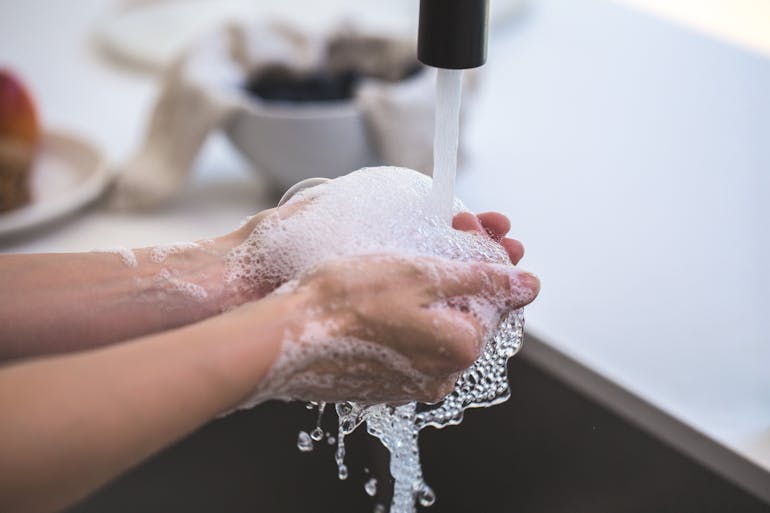What You Need To Prevent The Spread Of Coronavirus
Reviewed and fact-checked by Giulia Guerrini, Superintendent Pharmacist. Read our editorial policy to see how we create informative, accurate content.
The flu-like coronavirus continues to spread globally. As of the beginning of March 2019, there have been about 90,000 confirmed coronavirus cases. Although the mortality rate is low, the virus is highly contagious. So, it’s only fair you learn the coronavirus prevention measures.
We’ve identified key measures to help slow down the spread of the coronavirus:
Washing hands with good soap and water
According to the CDC, washing hands with good soap and water is the best way to prevent the transmission of coronavirus. However, there’s a right way to wash your hands thoroughly.
First, wet your hands with clean water. Then, stop the running water and soap up your hands. Form a lather by simply rubbing your hands together. Cover the areas between your fingers, under your nails, and the back of your hands. Lathering creates friction enough to remove clingy dirt and germs off your skin because that’s what we want to eliminate.
You should scrub your hands for at least 20 seconds. Then rinse your hands under clean water before air-drying them or drying them with a clean towel.
More importantly, avoid touching your eyes, mouth, and nose with unwashed hands.
We recommend: Carex Hand Wash Nourishing
Hand sanitiser
Besides soap and water, hand sanitiser is also effective.
Start by pumping a sufficient glob of hand sanitizer on the one hand. Then rub your hands together for at least 20 seconds. Hand sanitizers don’t remove dirt, but they work on germs. Your best option is an alcohol-based sanitizer with at least 60% alcohol content. You can check out our in-depth article on the best way to use hand sanitiser here.
Face masks
You’ve been seeing people with face masks in the heavily hit areas such as China and South Korea. Face masks need to be tight to prevent the inhalation of coronavirus.
If you are infected, a face mask will help prevent the spread of the virus. Also, if you are a healthcare provider working with infected people, you should wear one.
The best face masks are the N95 masks. These masks block 95% of very particles considered very small.
Cover your coughs and sneezes
Use tissues to cover your nose and mouth when you sneeze or cough. Then, throw away the used tissues in a covered and lined bin. Make sure you clean your hands with soap and water after throwing away the tissues.
We recommend: Kleenex Balsam Pocket Tissues
Thoroughly clean "high-touch" surfaces
Counters, doorknobs, toilets, bathroom fixtures, phone screens, and tablets qualify as "high-touch" surfaces. You should clean these surfaces daily, using household cleaning spray or wipes.
Gloves
Like face masks, global health organizations are recommending surgical gloves for infected people and healthcare providers.
After coming in contact with an infected person, dispose of the gloves safely – in a lined trash can. Then, wash your hands thoroughly.
We recommend: Cyraguard Premium Gloves
Multivitamins
Another way to protect yourself against the virus is by taking vitamin supplements. The idea here is to boost your immune system.
Nutraceutical-grade vitamins are your best option. They help increase your white blood cell count.
Also, consider zinc supplements. 50mg of zinc daily will increase the level in zinc in your tissues, which helps in the inhibition of viruses, such as coronavirus.
We recommend: Cytoplan 50+ Multivitamin and Minerals Capsules
Coronavirus, aka COVID-19, is a highly contagious infection. However, there are measures you can take to protect yourself. The most important prevention measure is thoroughly washing your hands with soap and water and using hand sanitiser when out and about.

